- Home
- Tillie Cole
A Veil of Vines Page 2
A Veil of Vines Read online
Page 2
I thought back on my New York farewell of nine hours ago and sighed. My parents had driven me to the private hangar and said their goodbyes. My mama cried—her only child was leaving her for a new life. My papa, although sad to see me go, beamed at me with the utmost pride. He had held me close and whispered, “I have never been more proud of you than I am right now, Caresa. Savona Wines’ stock has plummeted since Santo’s death. This union will reassure all the shareholders that our business is still strong. That we are still a stable company with Zeno at the helm.”
I had given him a tight smile and boarded the plane with a promise that they would see me before the wedding. And that had been that.
I was to marry Zeno, and I hadn’t protested even once. I imagined to most modern-day women living in New York, the process of arranged marriages sounded positively medieval, even barbaric. For a blue blood, it was simply a part of life.
King Santo Savona died two months ago. The shareholders of his many Italian vineyards, the stakeholders in Savona Wines, had expected his son, Zeno, to immediately step up and take charge. Instead, Zeno had plunged himself into the party scene even harder than before—and that was quite a feat. Within weeks my papa had flown out to Umbria to see what could be done.
The answer: our imminent union.
I knew I had been fortunate—for our social circle—to get to age twenty-three and still not be married. That had been no decision of mine, even though it pleased me greatly. It had all been down to Zeno. The king had wanted his son to sow his wild oats. Get the “playboy behavior” out of his system before we wed. But no one had expected King Santo to pass away so young. We all thought he would be around for many years to come.
It was decided—mainly by my father, Zeno’s uncle Roberto and the board of Savona Wines—that Zeno needed to grow up and become responsible. And quickly.
The date for our marriage was immediately set. The board was satisfied.
My stomach lurched as the plane dipped. I opened my eyes, trying to shed the deep unease I felt in my veins, and saw the twinkling view of the Florentine city lights below. I let my forehead fall against the window and stared, unseeing, out of the glass as the plane touched down and parked in the Savona private hangar. Antonio, the G5’s air steward, opened the door of the plane and motioned for me to exit. A limo waited for me at the bottom of the stairs. The driver greeted me kindly, and I slipped into the back seat.
Before he closed the door, the driver spoke—in Italian, of course. I doubted I would speak a word of English from that day on. “Duchessa Acardi, I have been instructed by the prince to take you to the Bella Collina estate.”
My eyebrows knitted together. “In Umbria? I am to go to Umbria?”
The driver nodded. “The prince wants you to stay at his most impressive estate. He will meet you there. He has arranged dinner for your arrival.” He pointed at the limo’s lit-up bar. “The prince has organized refreshments for your journey. At this time of night, we should make it to the estate within a couple of hours. But he wanted you to relax and get comfortable. He anticipated that you would be tired from the journey.”
I forced a smile and thanked him. He closed the door, got into the car and pulled away.
Bella Collina? I had assumed I would spend all of my time in the Tuscan palazzo. I’d imagined my days to be filled with nothing but lunches, charitable dinners and meeting the crème de la crème of Italian high society.
I shook my head and pushed my confusion aside. I made myself comfortable on the long black seat and rubbed my fingers along my forehead. I was still feeling the effects of last night. Marietta had made sure that I was sent off with a bang.
I smiled to myself, remembering her passed out in the backseat of the car after our spontaneous tour of Manhattan. I had let her be, relishing my last few moments amongst the hustle and bustle of New York alone.
I thought of Bella Collina. I knew that in Umbria there would be absolutely no hustle and bustle. Florence was a busy city; I had been there many times. But Umbria? It was sleepy and calm, completely serene—but no less stunning than its wealthier, more popular Tuscan cousin.
A true flash of excitement washed through me when I thought of the very exclusive estate in which I would reside. It was home to the famous Bella Collina Reserve. A red merlot wine so rare that the waiting list just to acquire a single bottle was years long, even despite its eye-watering cost. The process of making this wine was never spoken of in the tight-knit wine world. The entire enterprise was shrouded in secrecy. Most sommeliers in the world would sacrifice a limb just to be a witness to Bella Collina’s production.
I wondered if I would be so fortunate as to see it.
All Savona wines were good, of course, but they were also mass-produced. The merlot was the shining jewel in their crown.
The more I thought of where I would be staying for the coming weeks, the more my suspicions grew as to why—I was pretty sure it was because the prince didn’t want his betrothed “ball and chain” cramping his style on the Florence nightclub scene. He wouldn’t be able to bring his nightly conquests to the Palazzo Savona with his fidanzata stalking the halls.
I sucked in my breath as I realized that I didn’t even care. I didn’t care about my future husband at all.
Thirty minutes passed, and I grew thirsty. I retrieved a bottle of acqua frizzante from the bar. I had just taken a couple of mouthfuls when I noticed a bottle of red wine that had been left to breathe on the shelf next to the cooler. A single crystal wine glass sat beside it. Then a flash of a familiar—but very rare—label grabbed my attention.
“No,” I whispered, lifting the bottle of red into the beam of the limo’s ceiling light. A smile tugged on my lips as I read the beautiful calligraphic font spread across the center. I noted the pencil drawing of an idyllic sprawling vineyard in the background.
“Bella Collina Reserve,” I murmured quietly and brought the bottle to my nose. I closed my eyes. I inhaled slowly, savoring the unique notes of this exclusive merlot. Blackberries. Dark cherry. Vanilla. Black pepper. A gentle, subtle hint of tobacco.
Warmth filled my chest at the beautiful aromas, and I opened my eyes. I reached for the glass and poured out a small amount of the deep-red liquid. Just as I was about to lower the bottle, I caught sight of the vintage: 2008. Thought by many to be the most important year of this reserve. No one knew why this year changed the wine so much, but experts agreed that from 2008, Bella Collina Reserve went from being a fine wine to one of the world’s greatest.
With this vintage as a gift, Prince Zeno was bringing out the big guns.
I sat back and took a tentative sip. The minute it hit my tongue, I immediately felt at home.
My family knew wine; it was our business. And I knew this reserve; it was my dream flavor. My favorite. A wonder to me. Over the years my palate for wine had grown strong. I had visited hundreds of vineyards, some of the best in the world, yet nothing could compare to this. As far as wines went, it was perfect.
By the time we had turned off the main thoroughfares and traveled along a winding road that led to an impressive stone entrance, I had managed to drink two glasses. The speaker linking me with the driver sprang to life. “Duchessa, we have arrived.”
I opened the window beside me and stared at the illuminated entrance. I swallowed hard and placed my empty glass on the bar. Metal groaned, breaking through the twilight, as the massive black wrought-iron gates began to open. The limo slowly pulled onto the property’s lane, and I drank in the thick forest that shielded the estate. I inhaled the freshness of the lush green trees. The unpolluted sky was thick with stars—not a single cloud in sight.
A few minutes later, the thick woods cleared, and I gasped. Acres and acres of gold and green vineyards covered the landscape. The scents of plump grapes and damp soil permeated the warm air. I closed my eyes. It reminded me of being a child. It brought me back to the days before I was taken to New York. I could still feel the heat of the Emilia-Romagna sun on
my face, the deep smell of olives, grapes and flowers drifting in the breeze as I ran around our Parma estate.
I smiled a nostalgic smile and allowed my eyes to drift open again. I rested my arms on the window and leaned my chin on them as the limo drove on. There were several small villas peppered over the landscape, their lights twinkling in the distance. They must have been the winemakers’ residences. It was not only the Bella Collina merlot that was made on this land; other reds were too—particularly the Chianti from the region’s finest Sangiovese grapes. The Bella Collina olive oil was also up there with the best. But nothing compared to the famed merlot.
The limo turned right, and my breath caught in my throat. I lifted my head and stared disbelievingly at the property ahead. Bella Collina was a veritable Palace of Versailles tucked away in the Umbrian wilderness.
“Mio Dio,” I whispered as I took in the imposing stone structure, the sweeping steps and the vast number of windows set in the building’s walls. Large pillars of red-veined marble flanked the entrance. Cypress trees framed the estate as if it were the shining star of a fine Renaissance painting. Sculptures of famed Savona monarchs of old stood proudly on the manicured lawns, and strategically placed lighting illuminated the sheer perfection of every piece of topiary.
As a child, I had been to the Palazzo Savona in Florence. It was widely regarded to be one of the finest estates in all of Italy, if not western Europe. But this . . . this . . . there were no words. It was perfectly placed, as if it had always been there. As if it had grown naturally from the Umbrian earth just as sure as the vines and woods that kept this architectural treasure hidden from view.
The limo rounded the corner and glided to a halt. I took a deep breath as I looked up at the house that sat high above, made only grander by the many levels of stairs leading to its front door.
The driver appeared at my window and opened the door. He held out his hand, and I forced myself to abandon the safety of the car. The soothing sound of rushing water hit me first. A huge, ornate water fountain occupied a central position in the wide driveway. I had not seen it from my side of the limo. I walked toward it. The crest of Savona assumed pride of place, towering like a spear thrust from the center, spotlights adorning the intricately carved marble shield with layers of soft light.
Lost in its ornate design, I turned only when I heard the sound of footsteps descending the main stairs. A man dressed in a dark suit slowly approached. The driver immediately stood to the side of me, dutifully, waiting for the gentleman.
“Is that . . . ?” I trailed off. The driver’s reaction betrayed it was someone of importance.
“Prince Zeno,” the driver finished for me. “Yes, Duchessa.”
The prince approached at a leisurely pace, like a man who was used to people waiting for his arrival.
From this distance, I could barely make out his features, but the closer he got, the clearer they became. And Marietta had been right. He was extremely handsome, the epitome of Italian beauty. His black hair was thick, brushed over to the side and styled to perfection. His skin was olive and clear, his face cleanly shaven. His tailored navy-blue suit was most certainly designer, and it fit his lean, muscular body like a glove. I could see why the rumors of his handsomeness had reached the circles of the New York Italian gossipmongers.
When he was but a few feet from me, his blue eyes met mine. His jaw clenched briefly, as if he was fighting discomfort—or forcing himself to be here, I thought—but then a blinding smile pulled on his lips and a confident façade settled on his exquisite features. “Duchessa,” he said warmly, bowing politely before reaching for my hand. Such was the duty of any aristocratic man; he gently brought the back of my hand to his mouth and grazed his lips across the skin.
He released my hand, and I dropped into a curtsey. “Principe.”
When I stood, Zeno’s blue eyes were watching me closely, roving down over my fitted knee-length Chanel dress and down to my Prada heels. His gaze rushed over my shoulder-length hair, which was styled straight and parted in the center. On the plane, I had applied a dusting of light makeup, finishing the look with a bold red lip. Five-carat Tiffany diamond studs sparkled in my earlobes—classic Italian glamor.
His eyes finished their journey, and I caught a slight flaring of his nostrils. A nervousness washed over me. I may not have had a long history of relations with men, but I could recognize one who liked what he saw. The knowledge should have pleased me. It surprised me to find that I was simply . . . indifferent.
Zeno’s mouth hooked into a small smirk. Behind him, a few men dressed in the typical housekeeper uniforms of black pants, white shirts, black vests and smart black ties came down the stairs. Wordlessly, they moved to the trunk of the limo and retrieved the few suitcases I had brought with me.
“The belongings you had shipped arrived yesterday. They have already been put away in your room.” The prince pointed to the men now carrying my bags. “These too will be ready for you within the hour.”
Prince Zeno extended his elbow, gesturing for me to thread my arm through his. “That gives us time to eat the dinner I have had prepared to celebrate your arrival.”
I gave him a tight smile and linked his arm. We had only taken three steps when I said, “Oh, excuse me a moment.” I rushed back to the limo, grabbed the half-full bottle of Bella Collina merlot and hurried back to the where the prince was waiting.
His eyes narrowed as he noticed what I held. I felt my cheeks warm and explained, “2008 is such a special vintage of this wine. I couldn’t let it go to waste. Especially because of how much it costs.”
Prince Zeno smiled. “Your father mentioned your love of our most sought-after wine.” Ah, I thought, that explains it being left for me. I wondered what else my father had schooled him on to impress me. “We can have the rest with the meal,” he added.
Zeno pushed out his elbow once again. I linked my arm through his and let him lead me up the steps. With every step ascended, I couldn’t help but look out over the gardens, to the rolling hills in the distance.
“What do you think, Duchessa?” Zeno asked, bringing my attention back to him.
I shook my head, searching for something to say. I could not quite put the beauty of this magical place into words. “It is . . . beyond anything I could ever have imagined.”
“It is quite something,” Zeno agreed.
“How many acres do you have here?” I asked.
“Bella Collina has just under ten thousand.”
“That much?”
Zeno shrugged. “A great deal of that land is woods, orchards and olive trees for the oils. And, of course, the vines. About five thousand are used for the wines.” I cast my eyes over the vast land below. “Most of our vineyards around Italy are of a similar size.” He paused, then said proudly, “Though none produce wine like Bella Collina. Whether it be the soil here, the weather, or a mixture of both, no other winemaker in the world can compete.”
I nodded in agreement. “So you spend a lot of time here?”
Zeno tensed momentarily, before schooling himself. “Not so much. The palazzo in Florence is my home.” He cleared his throat. “My father . . . he spent much of his time here.”
At the mention of the king, I felt a rush of sympathy. Pressing my free hand to Zeno’s arm, I said, “I am so sorry about your father, Zeno. It must be difficult for you right now.”
Zeno’s blue eyes flicked down to me for a second before focusing back on the final set of steps. “Thank you. He spoke highly of you.” Zeno’s jaw clenched. Nothing else was said on the matter. It was obvious the subject was painful for him.
Silence reigned until we reached the house. I stopped and stared up at the mansion. “It is breathtaking.”
Zeno waited for me to stop my admiration before gesturing toward the open doors that led into the house. The minute I entered the lobby, my eyes widened. Above was a domed roof, which reminded me of the Florence Duomo, the beautiful cathedral where our wedding would take place. R
ich golds and reds adorned the walls and furniture. And in the center was a grand staircase, split into two. Impressive crystal chandeliers hung like diamonds from the ceiling, bathing the room in golden light.
But best of all were the oil paintings of all the Savonas of Italy. I walked to the long wall and smiled at the old monarchs who had shaped Italian history. It ended with a new painting: Prince Zeno. He stood in a proud pose, staring off to the side, the angle showcasing his strong jaw and dark features.
I turned away, stopping in my tracks at the sight of the huge painting that covered most of the wall. It was of a small vineyard nestled into the side of a hill. I moved closer. The vines ran in rows, green and browns, bustling with ruby-red grapes, thick and ripe. In the distance was a small villa. No, it was better described as a gray stone cottage, like something pulled from the pages of a fairytale—a hidden sanctuary tucked away from the busy world. An old-fashioned lamp shone above its door, welcoming anyone who approached.
I didn’t know why, but I couldn’t tear my eyes away. I was so entranced by the serene beauty of this small piece of heaven that I didn’t notice Zeno had moved beside me until he spoke. “It was my father’s favorite painting. He would spend hours looking at it.” He shrugged. “I have no idea why. It is of a shabby villa in the middle of a field, only fit for paupers.”
My stomach rolled at the hint of sadness in Zeno’s voice. He must have felt my pity, because he immediately cleared his throat and gestured for me to follow him. He led the way through an ornate golden archway to another large room where several people in housekeeping attire stood waiting.
Zeno moved to my side and placed a hand at my back. “This is the Duchessa di Parma,” he said to the estate’s staff. “Duchessa, these are the people who keep Bella Collina in pristine condition, the men and women who will make your stay here comfortable.”

 Crux Untamed
Crux Untamed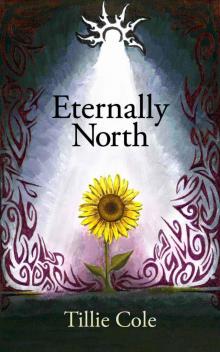 Eternally North
Eternally North Reap
Reap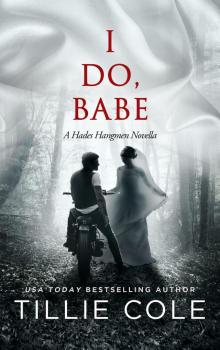 I Do, Babe
I Do, Babe Scarred Souls: Raze & Reap
Scarred Souls: Raze & Reap Riot
Riot Ravage
Ravage Raze
Raze Heart Recaptured
Heart Recaptured Sweet Hope
Sweet Hope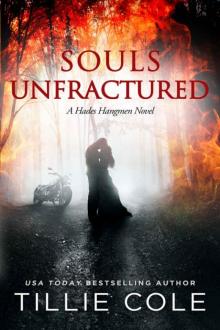 Souls Unfractured
Souls Unfractured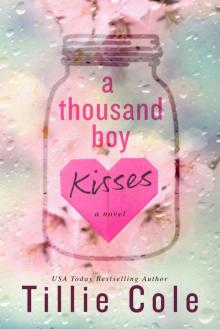 A Thousand Boy Kisses
A Thousand Boy Kisses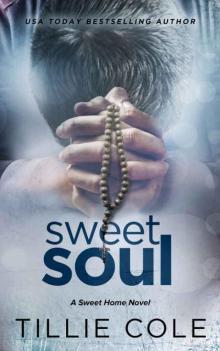 Sweet Soul
Sweet Soul A Wish for Us
A Wish for Us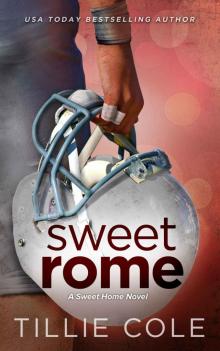 Sweet Rome
Sweet Rome Deep Redemption
Deep Redemption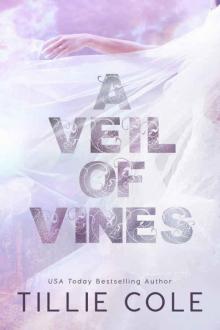 A Veil of Vines
A Veil of Vines Raphael
Raphael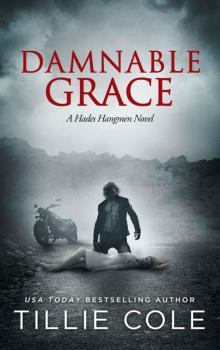 Damnable Grace
Damnable Grace Lord of London Town
Lord of London Town The Fallen: Genesis
The Fallen: Genesis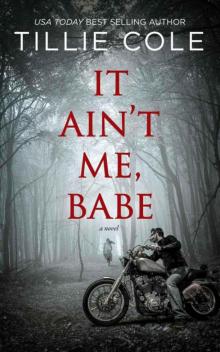 It Ain't Me, Babe
It Ain't Me, Babe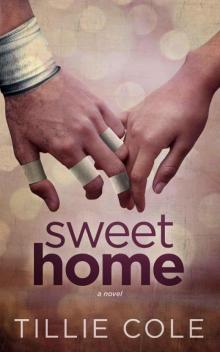 Sweet Home
Sweet Home Sick Fux
Sick Fux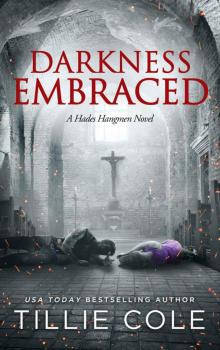 Darkness Embraced (Hades Hangmen 7)
Darkness Embraced (Hades Hangmen 7) Thoroughly Whipped
Thoroughly Whipped Raze & Reap
Raze & Reap Crux Untamed (Hades Hangmen Book 6)
Crux Untamed (Hades Hangmen Book 6) Beauty Found: A Novella (Hades Hangmen 6.5)
Beauty Found: A Novella (Hades Hangmen 6.5)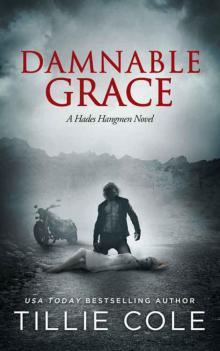 Damnable Grace (Hades Hangmen #5)
Damnable Grace (Hades Hangmen #5)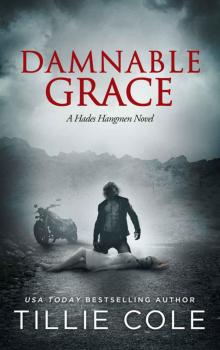 Damnable Grace (Hades Hangmen Book 5)
Damnable Grace (Hades Hangmen Book 5) Raze (Scarred Souls #1)
Raze (Scarred Souls #1)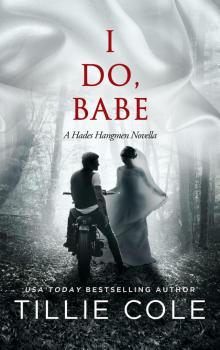 I DO, BABE : A NOVELLA (HADES HANGMEN BOOK 5.5)
I DO, BABE : A NOVELLA (HADES HANGMEN BOOK 5.5) Deep Redemption (Hades Hangmen Book 4)
Deep Redemption (Hades Hangmen Book 4)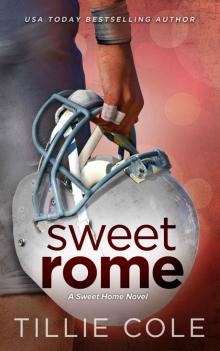 Sweet Rome (Sweet Home)
Sweet Rome (Sweet Home)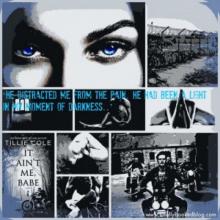 Valentine's Novella (Hades Hangmen #2.5)
Valentine's Novella (Hades Hangmen #2.5)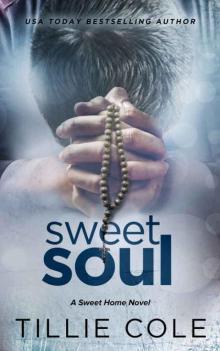 Sweet Soul (Sweet Home #5)
Sweet Soul (Sweet Home #5)